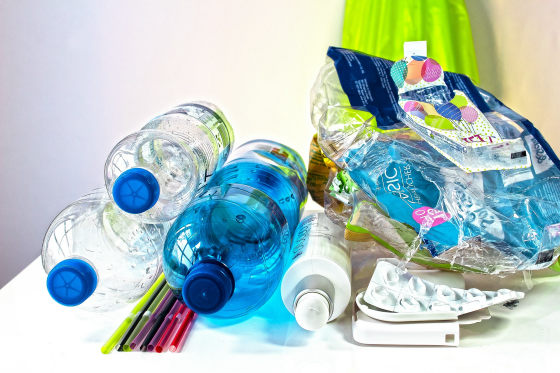Technology to convert plastic into fuel at the temperature of a kitchen oven is developed

Plastic waste to fuels by hydrocracking at mild conditions | Science Advances
https://advances.sciencemag.org/content/7/17/eabf8283
Combating plastics waste | U Daily
https://www.udel.edu/udaily/2021/april/center-plastics-innovation-solutions-single-use-plastic-waste/
Plastics Can Be Broken Down Into Fuel, And We Just Found a Great Method For It
https://www.sciencealert.com/scientists-create-a-better-way-to-break-down-plastics-into-fuel
According to UN data, only 9% of the plastic waste generated on Earth so far is recycled, 12% is incinerated, and remains untreated on Earth. The number of things is as high as 79%. Various studies have been conducted to solve such plastic processing problems, one of which is to convert polyolefin , which is the raw material of plastic, into fuel.
Meanwhile, a new paper published by a research team at the University of Delaware describes how to convert polyolefins, which are said to be 'especially difficult to recycle,' to liquid fuels such as diesel fuel, jet fuel, and gasoline-based hydrocarbons. I wrote it.

Until now, the technology of 'converting plastic into fuel' has been researched, but such technology has problems in terms of 'reducing costs' and 'reducing resources'.
In this regard, the new research requires 50% less energy resources than similar technology because the processing temperature required is about the same as that of an ordinary household oven, and carbon dioxide, which is a greenhouse gas, is added in the process of converting to energy. It will not be discharged into the air.
The research team decomposes carbon-carbon bonds in plastics using a chemical process called 'hydrogen decomposition' that uses a catalyst consisting of a mineral called

In addition, many of the plastics sold at the time of writing are blended with different types of materials, but with the above method, it seems that there is no need to separate multiple blended plastics.
Of course, such technologies do not fundamentally solve the plastic problem. To solve the problem of plastic waste, we need to move away from the very production of plastics using petroleum. This is acknowledged by researchers, and the team will continue to explore new ways to manufacture products.
Related Posts:
in Software, Web Service, Posted by darkhorse_log







